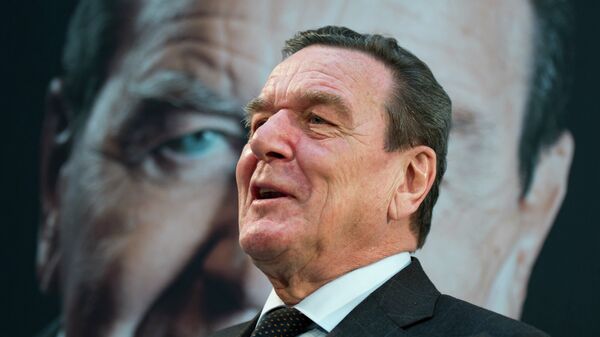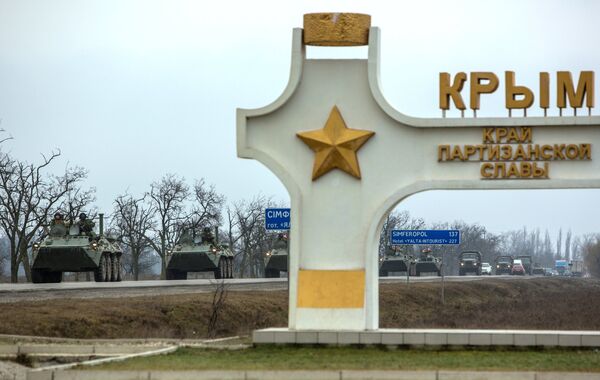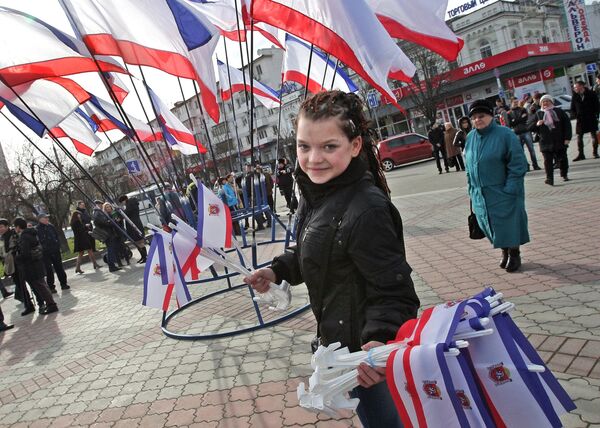Former German Chancellor Gerhard Schroeder has spoken out in favour of lifting of anti-Russian sanctions imposed by the EU after the reunification of Russia with Crimea, as he underscored that cooperation with the Russian Federation was especially vital in amid the global health and economic crisis spawned by the COVID-19 pandemic.
“Right now, when we are facing difficult economic times due to the coronavirus crisis, we need more cooperation. That is why senseless sanctions have to go,” said Schroeder.
When asked in the interview to comment the fact that the sanctions were Europe's answer to the alleged “annexation of Crimea” that violated international law, Schroeder said:
“Anyone who thinks that sanctions could be used to force Russia to do something is wrong. No Russian president will ever return Crimea to Ukraine. ”
Speaking about the situation in the east of Ukraine, Schroeder noted that "peaceful coexistence will only exist if Ukraine becomes a federal state in which the east of the country will gain more autonomy."
Underscoring the need for countries to join forces in the fight against the common enemy – the COVID-19 virus, Schroeder said:
"Instead of confrontation, today it is all about understanding, cooperation and solidarity worldwide."
As he urged the German government to face the lessons of history unflinchingly ahead of the 75th anniversary of the end of WWII, Schroeder emphasised:
“It was a cruel campaign of extermination with the aim of making Russia disappear from the world political stage. We must never forget that - and German Russia policy must take this into account more than is currently the case.”
The former German Chancellor concluded that despite the past, “Russia is willing to work with the new Germany in a spirit of trust cannot be overestimated. It does not fit that we continue to support the sanctions against Russia. "
EU Sanctions Against Russia
Relations between the Russian Federation and Western countries deteriorated in March 2014, following Crimea's reunification with Russia after almost 97 per cent of the peninsula's residents supported the move in a regional referendum.
The reunification was not recognised by the West, including EU members, despite Moscow repeatedly stressing that Crimea had conducted the referendum in compliance with international law.
That was when the EU first imposed its anti-Russian sanctions, that include asset freezes and travel restrictions. Since then, the EU has extended the sanctions on a bi-annual basis.
Moscow has repeatedly denied all allegations and reacted with countermeasures against the Western nations that targeted it with sanctions.




